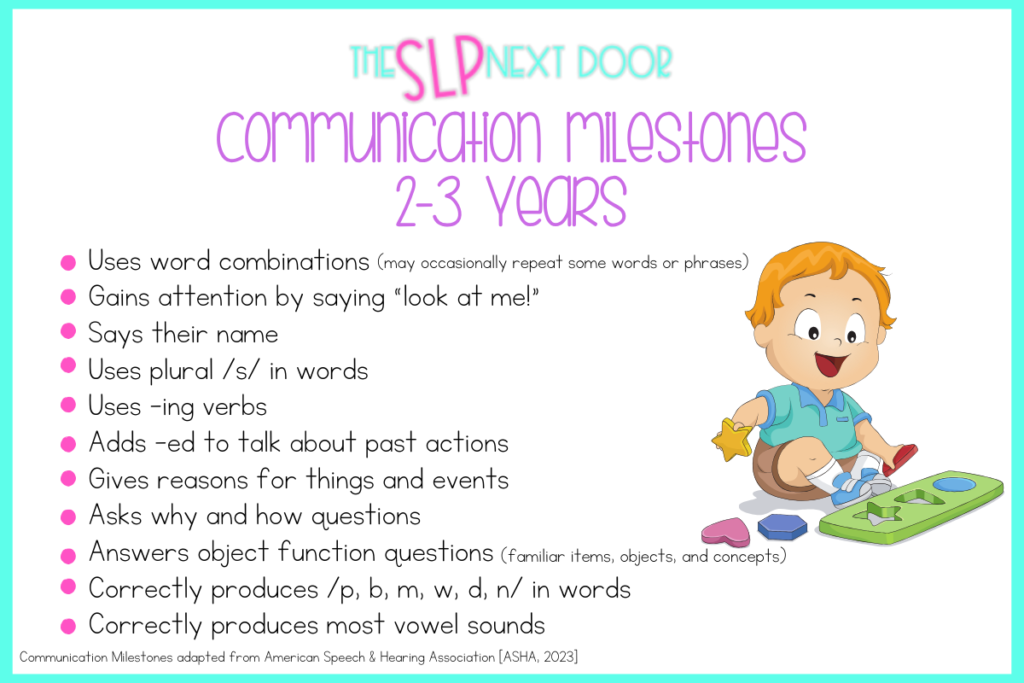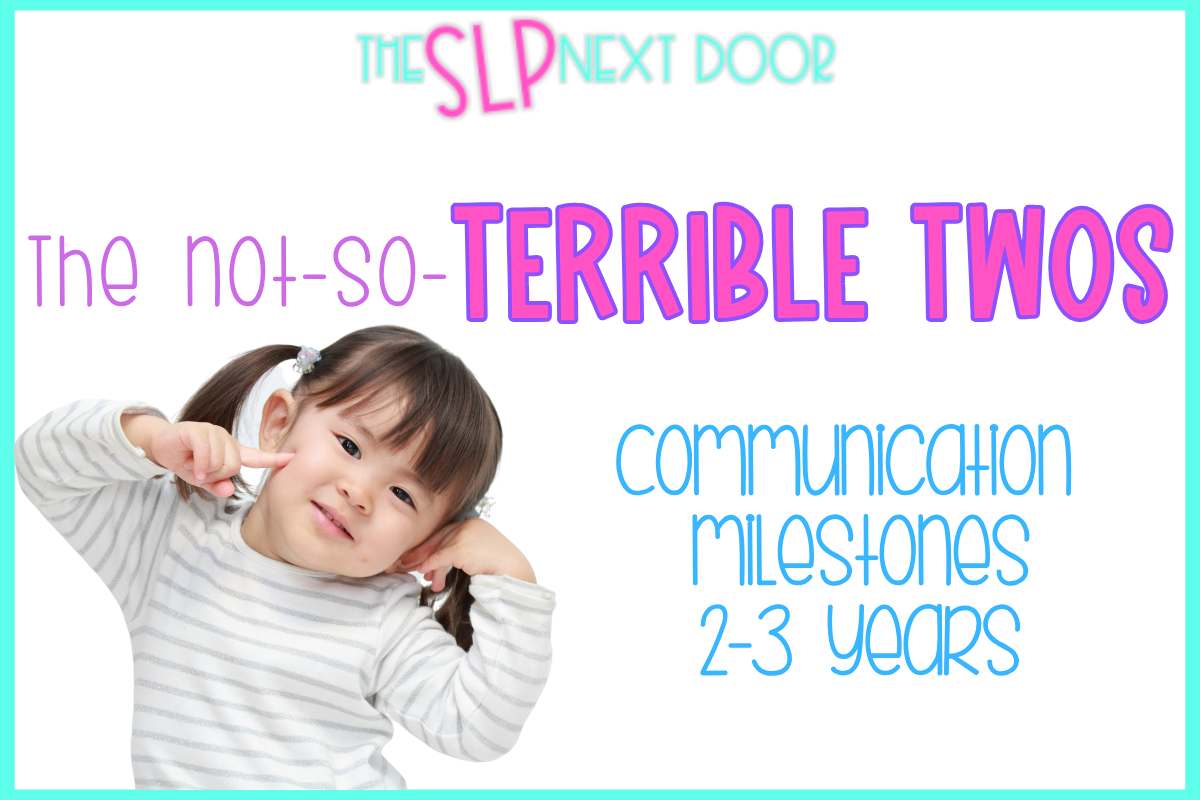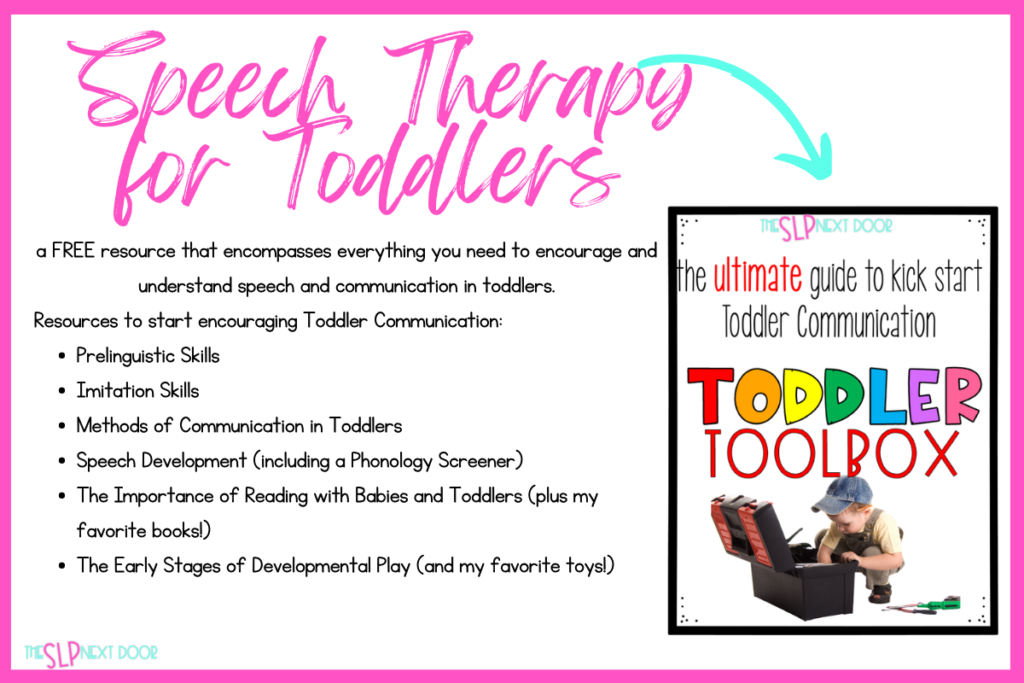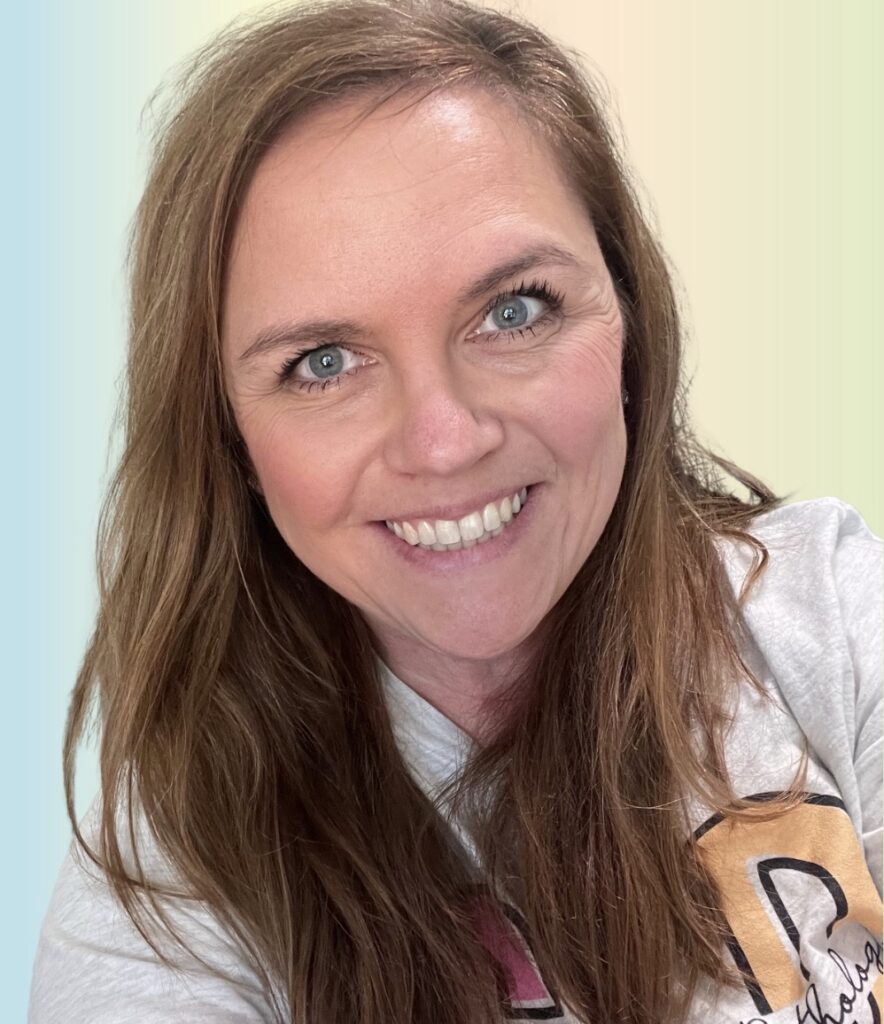Being 2 years old tends to come with a pretty bad rep- I mean, it’s labeled the “terrible twos”. But, if you’ve been here long enough, you know- I’m all about shifting the mindset when it comes to the way we look at, evaluate, and engage with- toddlers. Including 2-year-olds. Today, we are going to talk about the communication milestones for 2-3 year-olds and how can affect behavior!
This age is called the terrible twos because it can be quite challenging. Toddlers have grown from infants to upwardly mobile, talking, and very curious, tiny humans with big emotions. There is so much development that is taking place during this age. Cognitive, motor, communication, social, and emotional skills are all rapidly developing at once.
Another time this type of wild rapid development and change occurs? The teenage years.
2 Years Language Milestones
Toddlers should be chatting away and using word combinations often but may occasionally repeat some words or phrases such as “I want cookie” or “go go go out” They will also try to get your attention by saying “look at me”. Now, if, for some reason, this does not work, they may also use gestures (such as grabbing you or pulling you somewhere) or (and take of note this) behaviors. They will say their name when asked, begin to use the plural form of some words, and use -ing verbs. Additionally, they will begin to use the past tense form of some verbs (even if it’s not the correct form) such as played or “go-ed”

Not So Terrible Twos
Something really fun (but also challenging) about 2 year olds? Their problem-solving and inquisitive skills are on overdrive. By the time they turn 3, toddlers can provide simple reasoning to things and events like understanding the function of objects (of objects and things are familiar with). They may also ask “why” and “how” questions.
I think the biggest struggle with this age is they want control over things in their life and, most times, toddlers don’t have it. This is especially true if there’s a breakdown in their communication. If you think about it, lack of control is often the reason for bad behaviors in toddlers- something happens, it hurts their feelings, and they feel out of control over what’s being done, and it’s frustrating. (sound familiar, grown-ups?)
When I meet parents and talk to clinicians about this age group- that is one topic we will discuss. Giving the toddler some form of control over a situation.
Speech Therapy for Toddlers
Here’s what this could look like in a session. Let’s say you have a toddler refusing to participate in the activity presented. Change your activity. Provide them an opportunity to make a choice for which activity they want to play with or simply follow their lead. This could mean presenting a variety of toys, puzzles, and books and allowing the toddler to naturally gravitate to and explore the items in the room. Remember, language and communication can happen anywhere in any setting!
Sometimes, you just have to get creative.




